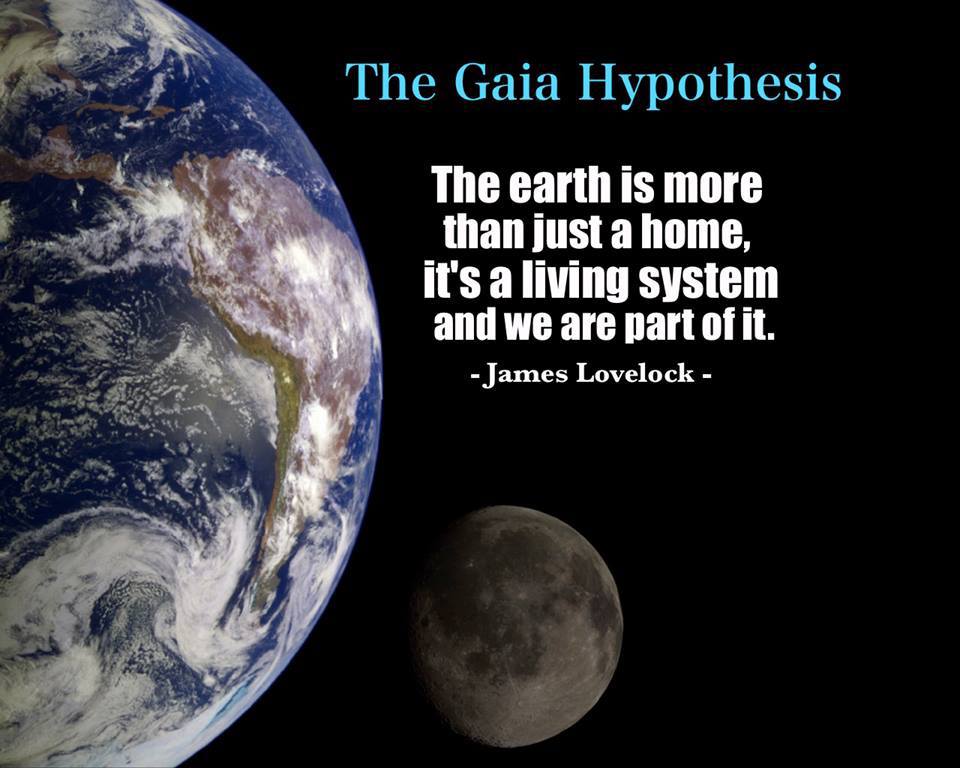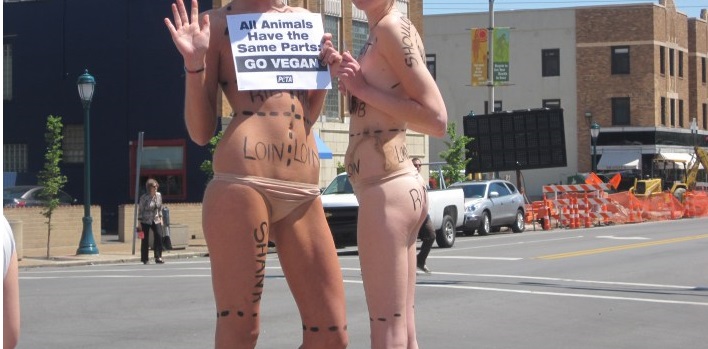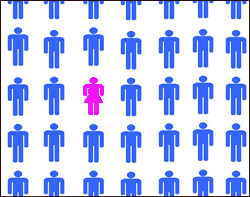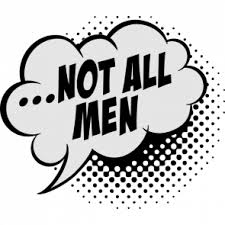By Eve Wetlaufer
We have all heard the ubiquitous term “Mother Earth,” and often in reference to treating the environment with more care. While the term might seem innocent, does anthropomorphizing the Earth actually help or hurt the environment? What about when the gender is female? What about when the female is a mother? What does the feminization of the Earth do for the feminist movement? I will first look at the ways in which giving the Earth a gendered role as our “collective Mother” is harmful, and then the ways in which it is beneficial. This is a topic that, for me, raises many more questions then it answers, but that is quite all right. As long as we continue to use this term, it is important to discuss the implications.
In the English language, nature and natural forces (hurricanes, tornadoes), many animals (cats, deer, rabbits), and, in general, whatever cannot be controlled take the feminine pronoun; when applied to nature, “she” still carries the connotations of femininity. ‘We should check carefully whether we really want to view our relationship with the Earth through genderdized lenses,’ warns Yaakov Garb. ‘What baggage will carry over from one domain to another (especially in a culture whose relation to both women and mothers is as misogynous as ours is)?’
– Greta Gaard, Ecofeminism, p.303
Femininity as well as motherhood carry many, often-stereotypical connotations in the world we live in today. When the Earth is given both a gender and a familial role, those connotations carry over. Gaard goes on to say that when the Earth is seen as female, she becomes associated with some of the cliché female attributes projected on to her such as the “damsel in distress,” “out of control,” and the sexualized female who can be a virgin, pillaged, and raped. In the later example, and issue Gaard points out is that the one who does the raping is culture, thus “culture is masculinized, and the human-nature relationship becomes one of compulsory heterosexuality” (104).
The second layer of the Earth’s given femininity is that she is a mother. The mother role takes on a whole other array of linked attributes such as nourishing, caring, supportive, and forgiving, and then on the flip side, stern, punishing, and spiteful. Mother Earth is often (subconsciously, even) seen as the female counterpart to “Father God,” who is most always male in the three major monotheistic religions of Christianity, Islam and Judaism. God is commonly understood to rule over (Mother) Earth, he created the Her (i.e. Psalm 24:1 states, “The Earth is the Lord’s, and everything in it, the world, and all who live in it,) and in contemporary commentary, God is often portrayed as working through the Earth with natural disasters, weather patterns, and the like. God and Mother Earth are commonly seen as separate from one another, but they are also in a hierarchical and heterosexual relationship of control.
The many different characteristics associated with a female and mother Earth can be harmful not only to the Earth itself, but the humans living on it. For example, Simona Sacchi, Paolo Riva, and Marco Brambilla begin to answer the question of how anthropomorphizing the Earth helps or hurts it, especially when wearing the “wise mother” hat in their 2013 study, When Mother Earth Rises Up. They conducted two studies that tested whether or not a group of people would feel more or less inclined to help victims of a natural disaster when the Earth was anthropomorphized. They found that “humanizing nature undermines the tendency to support victims of natural disasters.” While hypothetically it could actually help people cope with natural disasters because the natural force that caused it is rational and therefore must have had a deliberate reason, that is, in fact, the exact reason people were less likely to help victims. If Mother Earth deliberately caused this natural disaster to destroy a group of people, she must have had a reason, the thinking goes, according to the study. The Earth is simply acting as the “wise and all-knowing” mother role attributed to her.
Another example of a Mother Earth characteristic that works against it is the “always-loving” and “ever-replenishing” role. It is said that you can treat those who love you the most, the worst, because you know they will forgive you. Time and again, we see how mothers of convicted killers, for instance, still deeply love their children. Unconditional love is something a parent often has for their children, and that dynamic carries over to the way humans can be careless in their treatment of the Earth. These individuals separate themselves so deeply from the Earth that they view environmental degradation as an outside problem, one that She can deal with, especially because She is a mother figure, who is often seen as a fountain of replenishing love, wisdom and forgiveness.
A final critique of the term “Mother Earth” is that it is typically linked with whiteness. Although artistic depictions of Mother Earth often show her with green skin, the Earth-loving, granola-eating, White people have appropriated sustainability and care for the Earth as their movement. Lolaboloca writes about this issue in her article Reclaiming Abuelita Knowledge As A Brown Ecofeminista. She writes:
The thing is, I DO care about the environment but I cannot stand it when white people pretend they are all connected to the earth and refuse to understand that many of us — Migrant Brown People — come from backgrounds where “environmentalism” is not talked about because we grow up doing unintentional “green” things.
She gives the example of reusable pads during menstruation. Associating Mother Earth singularly with whiteness also discounts many People of Color whose religious and cultural traditions incorporate Earth fundamentally and often in a maternal role, such as many Native Americans tribes, who have long linked the Earth with spirituality and the Mother of all.
An interesting case study regarding these issues can be seen in the current state of the Yamuna River. Snaking down from the Himalayas and passing through Delhi, the Yamuna River spans 853-miles through India. With the rapid industrialization and increasing population of Delhi, and India as a country, the Yamuna has become neighbor to many manufacturing plants that directly dump their waste into the river, while 60 million people rely on the Yamuna for drinking and bathing water. Although there have been protests and a movement to protect the river, in some areas it is a thick, black stream of sewage. For many Hindus, the Yamuna River is much more than just a holy river; it is quite literally the Goddess who is giver of life and a lover of Krishna. Many devotees perform rituals at the river, in which they bathe and then drink it ceremoniously.
In David Haberman’s ethnography, River of Love in an Age of Pollution: The Yamuna River of Northern India, he describes how the belief in the Yamuna as a Goddess can actually cause a lack of environmental action for some people who believe Her to physically and spiritually wash away all sins, including the material waste. If She makes all unclean clean, then the pollution is inconsequential, and even offensive to some to discuss the current state of the river. Others feel the river’s condition can harm the living creatures in Her, but not the Goddess herself. And lastly, there is a group of Hindus who believe She (the river) is a victim and must be protected. This group has been a part of the protests and show us that personification of nature can in some cases be a motivator for action to create a more healthy Earth.
Before I explore the benefits of calling the Earth our mother, it’s important to take a step back and ask: Is anthropomorphism always bad? I don’t think so; in fact it seems to be a natural tendency for humans. We often relate the knowable (human) to the unknowable (non-human) in order to better understand. This is why we narrate what our companion animals are thinking, yell at technology when it isn’t working properly, and exclaim how wonderful the birds sound when they “sing.” In the same way, referring to the Earth as our mother allows us to frame the complexity and unspeakable mystery of the universe into terms we can easily relate to. This bridge has the budding opportunity to lead to empathy and compassion.
The Earth is a living, conscious being and the personification of it can help people to see that. This is one reason why James Lovelock’s Gaia Theory was so influential for the scientific community and beyond. In the late 1960’s Lovelock developed the Gaia Theory, which stated the organic and inorganic elements of the Earth have developed together as a single, self-regulating, living system. This allowed people to connect the Earth to any living organism, such as the human body. It also showed how humans as a species are dramatically effecting the harmony of the Earth, but how we also have the potential to live in accordance with the Earth’s equilibrium because we are a naturally occurring part of it. The theory is named after Gaia, Earth Goddess, whom in Greek mythology is said to have given birth to the universe.
With all the problems discussed in calling and experiencing the Earth our Mother, it has shown to also be a pragmatic tool to help the environment. There are countless nature-based schools, gardening and conscious living publications, vegan cafes, cruelty-free beauty brands, health food stores, and more all using the name “Mother Earth,” “Mother Nature,” or “Gaia,” which draw people closer to nature-based living.
But perhaps the greatest benefit from identifying the Earth as our mother is something that goes much deeper into our core understanding of our place in the world. When we identify the Earth as our Mother, there is a greater likelihood that we will create a connection that allows people to empathize with the Earth and her suffering, as they would with a member of their family. Viewing the Earth as a member of one’s family is a profound shift from the mainstream understanding of our relationship to the environment, and even different than the mainstream environmental thought. If the Earth is a part of our family, or better yet, we are a part of it and all that lives and grows upon it, how could we ever bring ourselves to harm it? To harm her is to harm ourselves.
Thich Nhat Hanh elaborates on shedding the common dualistic mindset when it comes to our perception of the Earth and ourselves in his book Love Letter to the Earth. Just as we are made up of our biological parents, we are also made up of the Earth:
We often forget that the planet we are living on has given us all the elements that make up our bodies. The water in our flesh, our bones, and all the microscopic cells inside our bodies all come from the Earth and are part of the Earth. The Earth is not just the environment we live in. We are the Earth and we are always carrying her within us.
He goes on to say that by realizing our interconnection with the Earth, and understanding it to be our Mother, we are bound to change the way we act for the better.
We too can see that the Earth is a living being and not an inanimate object. She is not inert matter. We often call our planet Mother Earth. Seeing the Earth as our mother helps us to realize her true nature. The Earth is not a person, yet she is indeed a mother who has given birth to millions of different species, including the human species.
But don’t think that Mother Earth is outside of you. Looking deeply you can find Mother Earth within you, just as your biological mother who gave birth to you is also within you. She is in each of your cells.
If we need to turn to anthropomorphic terms to feel this connection and subsequent care for the Earth, is that worth the baggage that comes along with feminizing and giving the Earth the role of our collective mother? Ideally, we would simply be at peace with the Earth as it is; with utter awe, reverence, and respect for its intrinsic value. Ideally, we would break free of the desire to relate everything back to human terms, as if the very essence of our species is the central tenet of what all else needs to be compared to. But we do not live in an ideal world. So I believe that in order to get one step closer to it, we can call, and more importantly feel, the Earth to be our Mother. Moving towards a more inclusive sense of family; towards an interconnected relationship with our human and non-human brothers and sisters, and with our Mother Earth.
References:
Conniff, Richard. “The Yamuna River: India’s Dying Goddess.” Environment: YALE Magazine. : The Journal of the School of Forestry & Environmental Studies, Spring 2011. Web. 19 Jan. 2016.
Gaard, Greta Claire. Ecofeminism: Women, Animals, Nature. Philadelphia: Temple UP, 1993. 303-04. Print.
Haberman, David L. River of Love in an Age of Pollution: The Yamuna River of Northern India. Berkeley, CA: U of California, 2006. Print.
Hạnh, Thich Nhất. Love Letter to The Earth. Berkley: Parallax, 2013. Print.
Lalobaloca. “Reclaiming Abuelita Knowledge As A Brown Ecofeminista | Autostraddle.” Autostraddle. N.p., 20 Mar. 2014. Web. 19 Jan. 2016.
Sacchi, Simona, Paolo Riva, and Marco Brambilla. “When Mother Earth Rises Up: Anthropomorphizing Nature Reduces Support for Natural Disaster Victims.” Social Psychology 44.4 (2013): 271-77. American Psychological Association. Web. 17 Jan. 2016.
 Eve Wetlaufer is in her third year at New York University in the Gallatin Program, with an individualized major investigating the historical human orientation toward animals, spirituality, and the environment, with a minor in the Animal Studies Initiative. Eve also holds a certification in plant-based nutrition from the T. Colin Campbell Center for Nutrition Studies. She has worked at several animal rescues, most recently Catskill Animal Sanctuary, as an Outreach and Education intern. She is also the loving companion to a rescued hound named Chrissy.
Eve Wetlaufer is in her third year at New York University in the Gallatin Program, with an individualized major investigating the historical human orientation toward animals, spirituality, and the environment, with a minor in the Animal Studies Initiative. Eve also holds a certification in plant-based nutrition from the T. Colin Campbell Center for Nutrition Studies. She has worked at several animal rescues, most recently Catskill Animal Sanctuary, as an Outreach and Education intern. She is also the loving companion to a rescued hound named Chrissy.














 maintain their status and privilege. Telling women to focus only on the animals and to stop making the movement look bad is another way men perpetuate their positions of power. Men might as well be saying they do not want to discuss gender inequalities and prefer to tell women how best to serve the interests of men. Men consistently interrupt women in both online and face-to-face conversations about veganism, aiming a barrage of questions at them, questions that constitute microaggressions against women (Khan, 2015).
maintain their status and privilege. Telling women to focus only on the animals and to stop making the movement look bad is another way men perpetuate their positions of power. Men might as well be saying they do not want to discuss gender inequalities and prefer to tell women how best to serve the interests of men. Men consistently interrupt women in both online and face-to-face conversations about veganism, aiming a barrage of questions at them, questions that constitute microaggressions against women (Khan, 2015).
